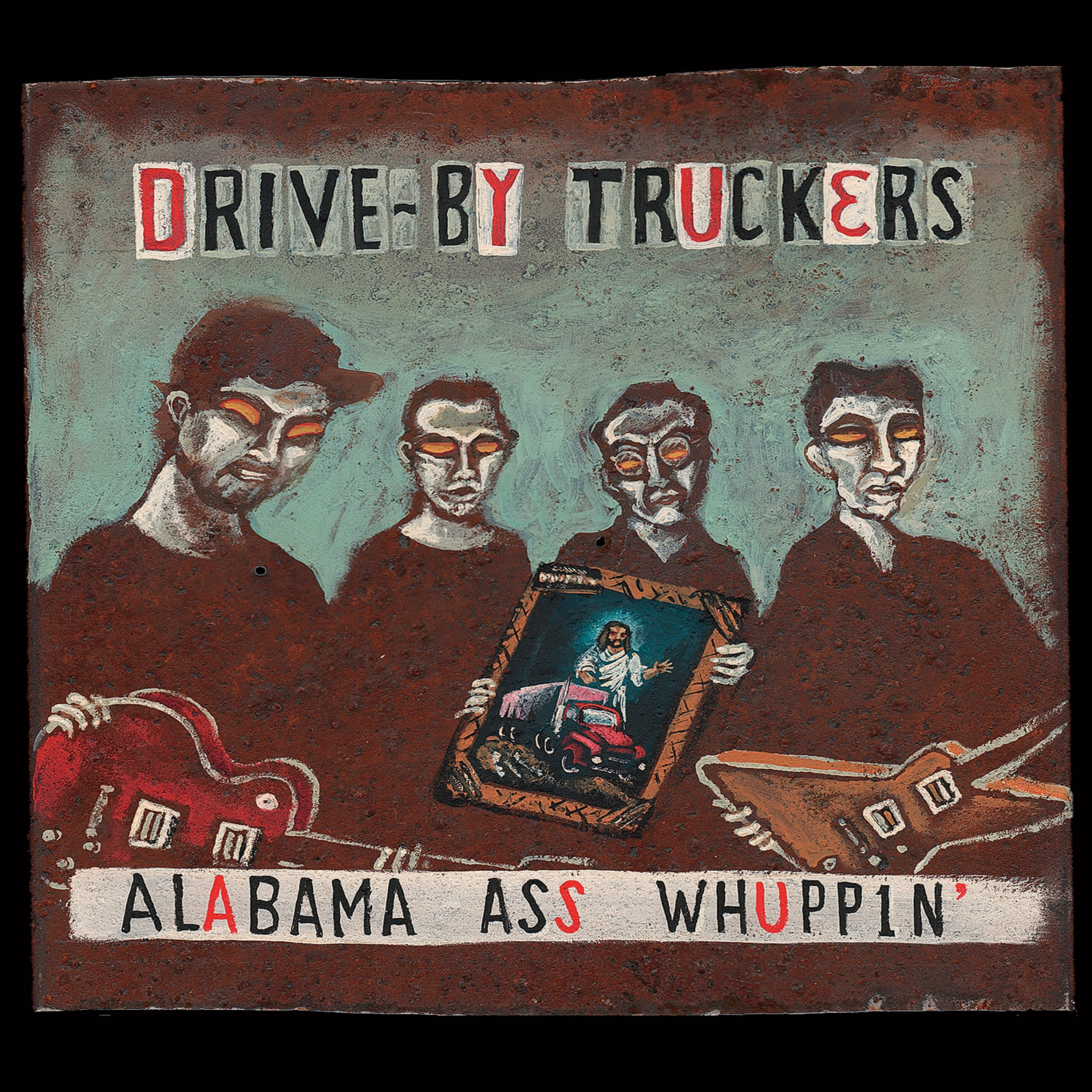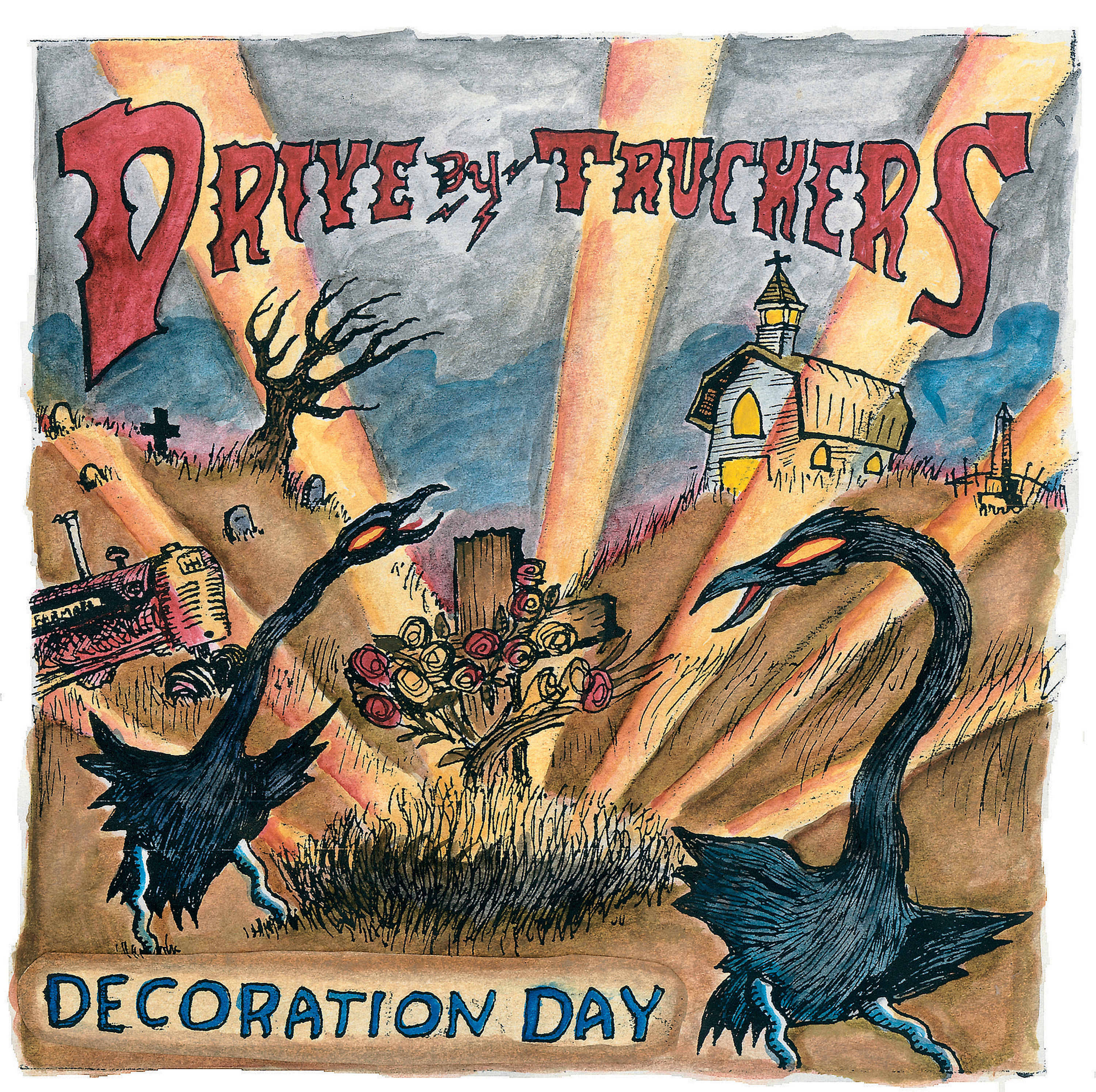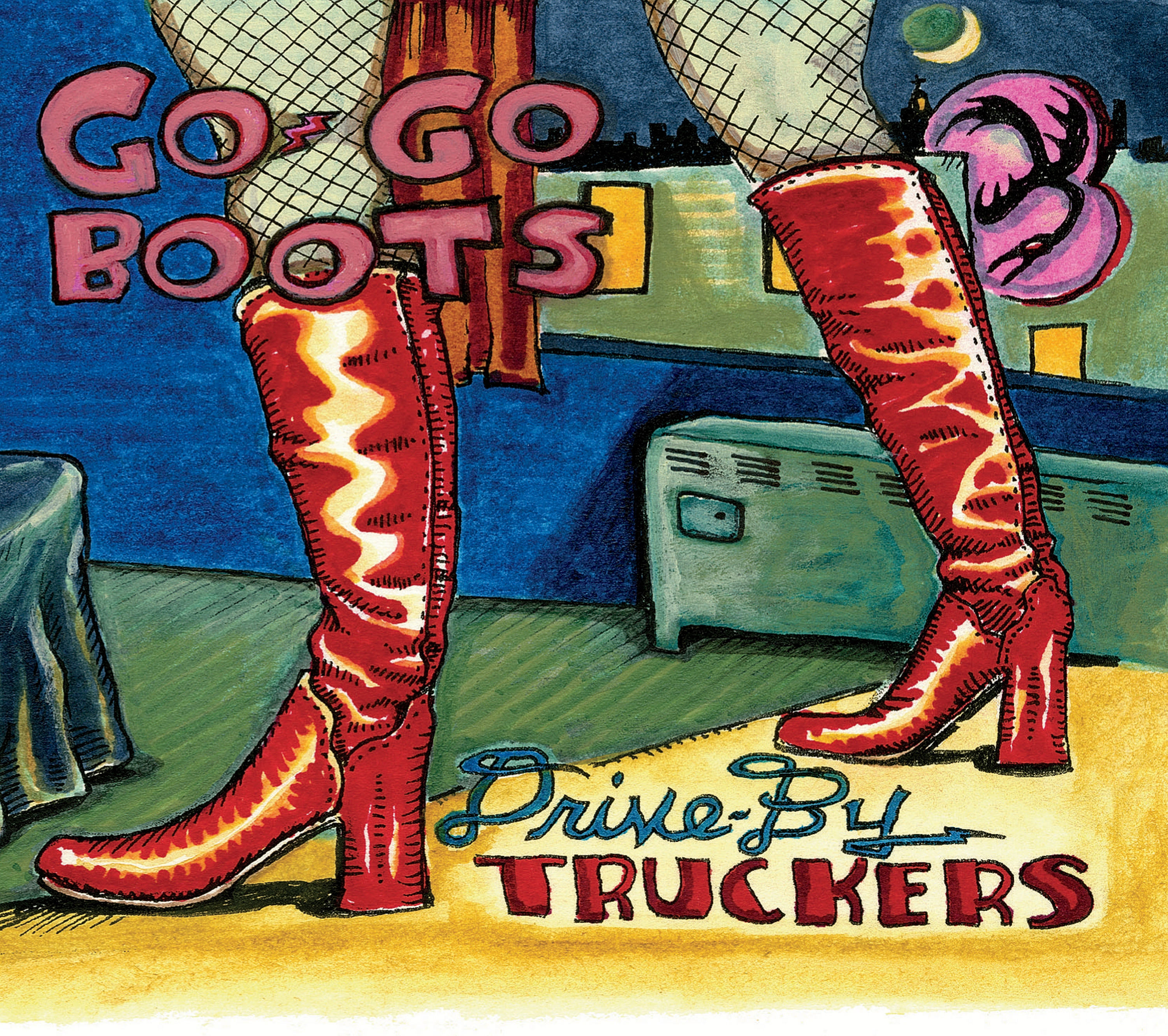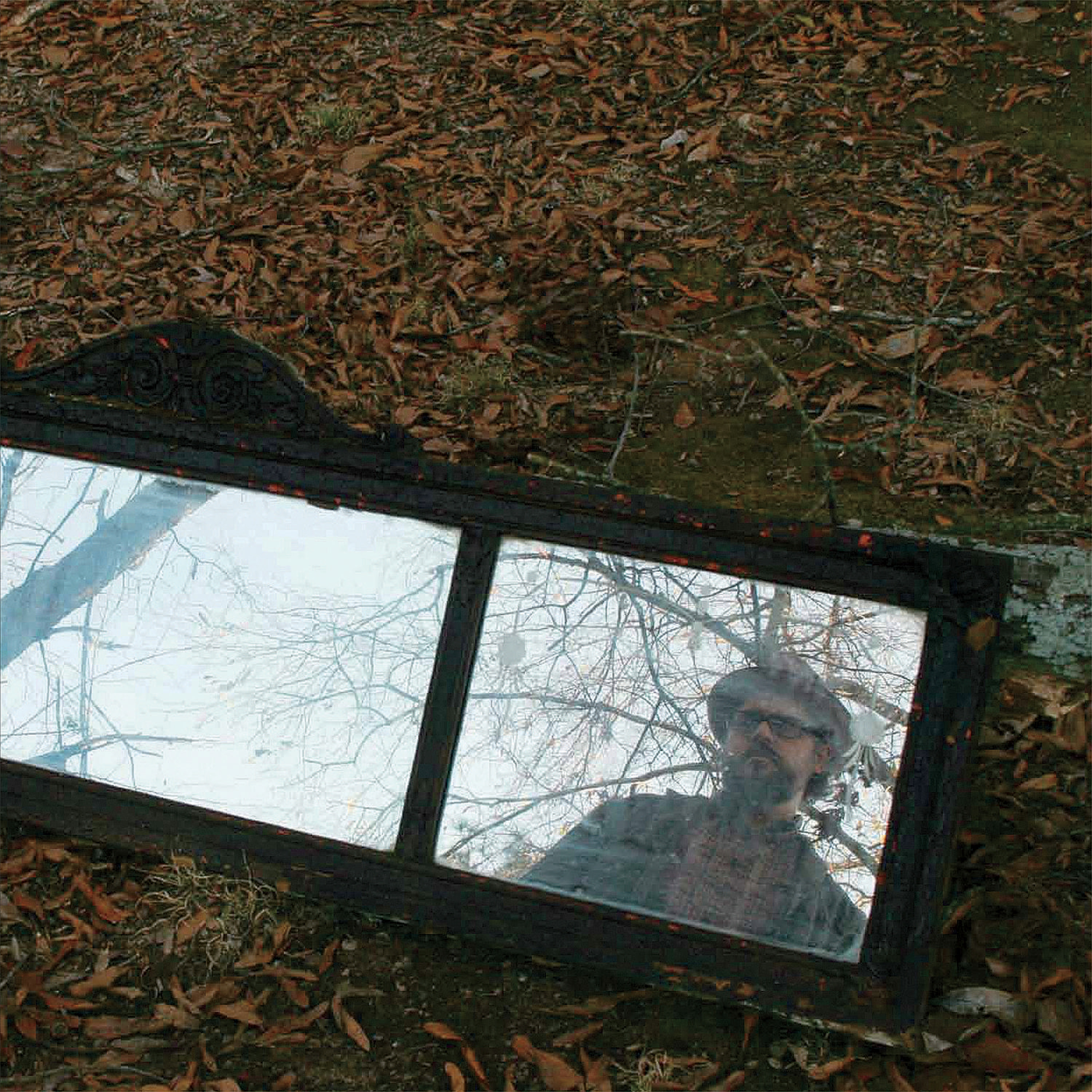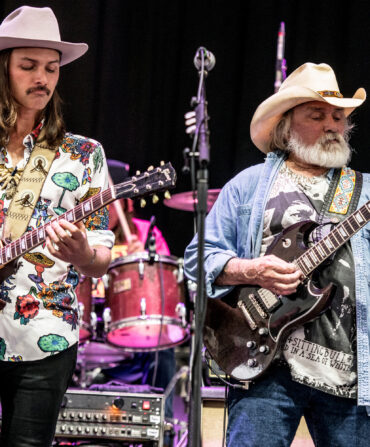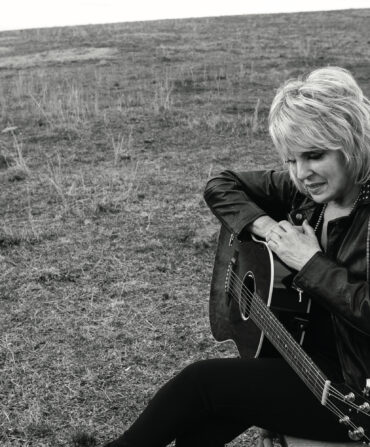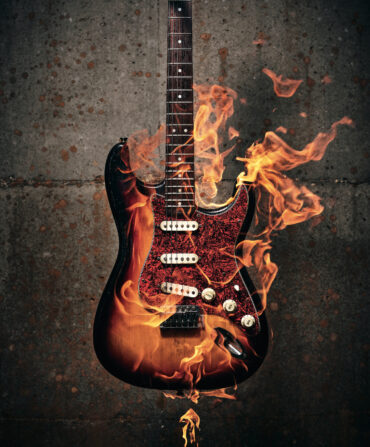Artists
Patterson Hood: The Southern Springsteen
The Drive-By Truckers front man has spent two decades giving voice to the grace and grit of life in the South. With the release of the band’s twelfth album, he’s proving he still has plenty to say
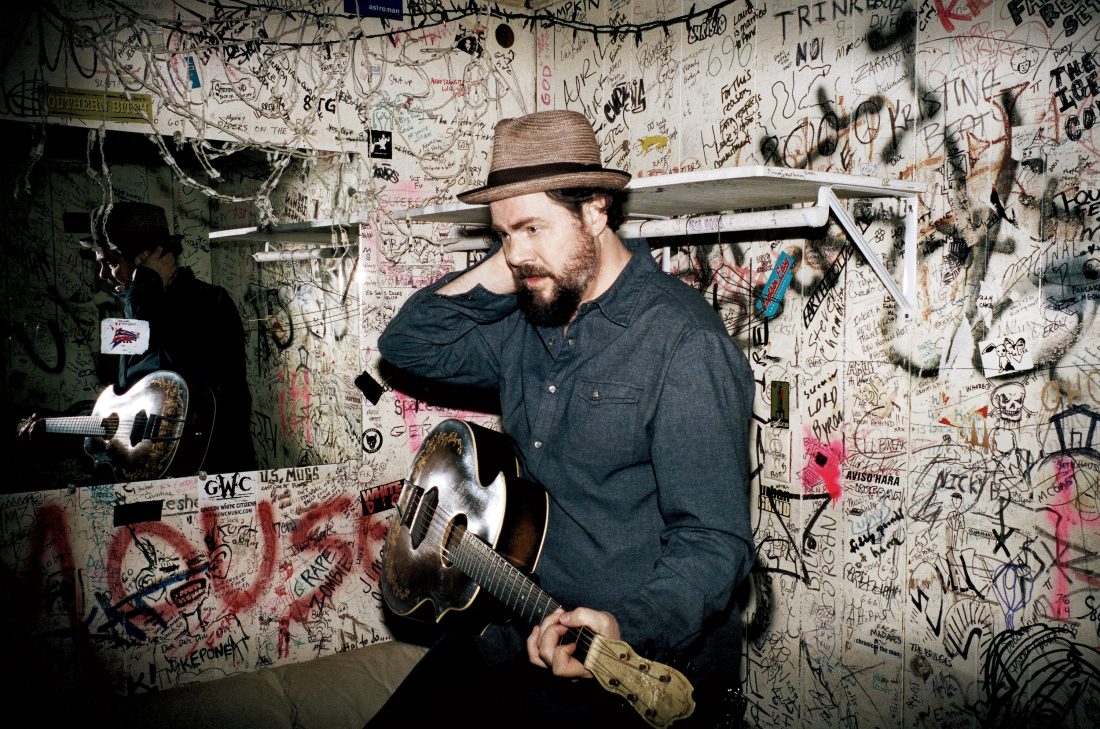
Photo: Jim Herrington
It’s an unseasonably mild early-November afternoon in Nashville, where the Drive-By Truckers tour bus is parked behind the Cannery Row complex on Eighth Avenue South. As the warm sun slowly sinks behind the buildings, a crowd gathers outside, waiting to be let in for one of those nontraditional rock-and-roll church services. The Truckers’ lead singer, Patterson Hood, watches the throng through a window in the bus’s back lounge. It’s just past 4:00 p.m. “I think I’m ready for a beer,” he says, opening a cooler to fish out an Amstel Light.
Barrel-chested and dressed in jeans and a rumpled shirt, his vintage brown Stetson, and black workman boots, Hood is blasting songs from the Truckers’ forthcoming album, English Oceans. Over the course of twenty years, Hood, who is forty-nine, has become one of the most prolific and respected songwriters in music, crafting deep character sketches in the tradition of great Southern writers such as Flannery O’Connor and Cormac McCarthy. Chock-full of sinister, flawed narrators, his lyrics chronicle racial politics and economic injustice, murder and morality, sickness and health. Think Bruce Springsteen with a flask of bourbon in his back pocket instead of a bandana. Like the Boss, Hood also has a knack for the simple, the elegant, and the celebratory. And no other modern Southern songwriter captures the dynamics of life below the Mason-Dixon Line in such intricate, vivid detail.
A new track, “Grand Canyon,” comes on, and the usually chatty Hood turns contemplative. The song is a tribute to Craig Lieske, a close friend of the band’s who died suddenly last January. Lieske was a legendary figure in Athens, Georgia, who at one point was Hood’s boss when Hood worked on the cleanup crew at the 40 Watt Club, the epicenter of the city’s music scene. When the Truckers would go on one of their lengthy tours, Lieske would join them, selling the band’s merchandise at each show.
“Grand Canyon” feels effortless, with every turn of phrase impactful and no wasted words. The title is a metaphor for life on the road and Lieske’s outsize personality. “I wrote it in about three hours,” Hood says. “Sometimes they just come pouring out of me.” The song closes with a soaring guitar before devolving into the squalor of ambient noise. Hood sighs. “I think I need another beer.”
Hood’s home in Athens, which he shares with his wife, Rebecca, and their two young children, is on a busy downtown street. The front yard is filled with wacky-looking metal sculptures, the whimsy tainted by a recently built monstrosity of a condo complex across the street. “How about that view?” Hood practically snarls as he comes to the door. But inside is a warm respite from the steel and concrete. The living room is full of vintage furniture, the colorful kitchen decorated with a number of paintings, including some by Wes Freed, who does most of the Truckers’ artwork. Off the kitchen is an office filled with records and overflowing with books. Hood picks up a copy of The Passage of Power, the fourth volume of Robert A. Caro’s biography of President Lyndon Johnson. “I’m kind of obsessed with Johnson,” he says. “He was the first president that I remember.”
As a child growing up outside of Muscle Shoals, Alabama, Hood developed a keen interest in history and politics, even writing a school report that was a scathing takedown of Richard Nixon. His teacher was not amused. “Most of the kids thought that Watergate was about Wilson Dam, which was the big TVA dam in our town,” Hood says. “But I knew Nixon was a crook and wrote about it in no uncertain terms. That didn’t go over too well.”
Hood’s father, David, was a member of the now-legendary Muscle Shoals Rhythm Section, playing bass on tracks by Wilson Pickett, Aretha Franklin, and the Staple Singers. His father owned hundreds of records, and as a child, Hood would pull them out, look at the covers, and decide which one to play. Curtis Mayfield’s funk/soul masterpiece Super Fly was an early favorite, and Hood was only eight when he wrote his first song, called, he thinks, “Living in a World of My Own.” It was about how all of his friends were imaginary, which wasn’t much of a stretch: North Alabama in the early seventies wasn’t exactly an artist-friendly environment for a self-described “misfit kid” who hated football and just wanted to sit in the back of class, daydream, and write songs. “Once I started writing songs, I wrote every day,” Hood says. “I mean, every day. By the time I was eleven, I could outwrite anyone.”
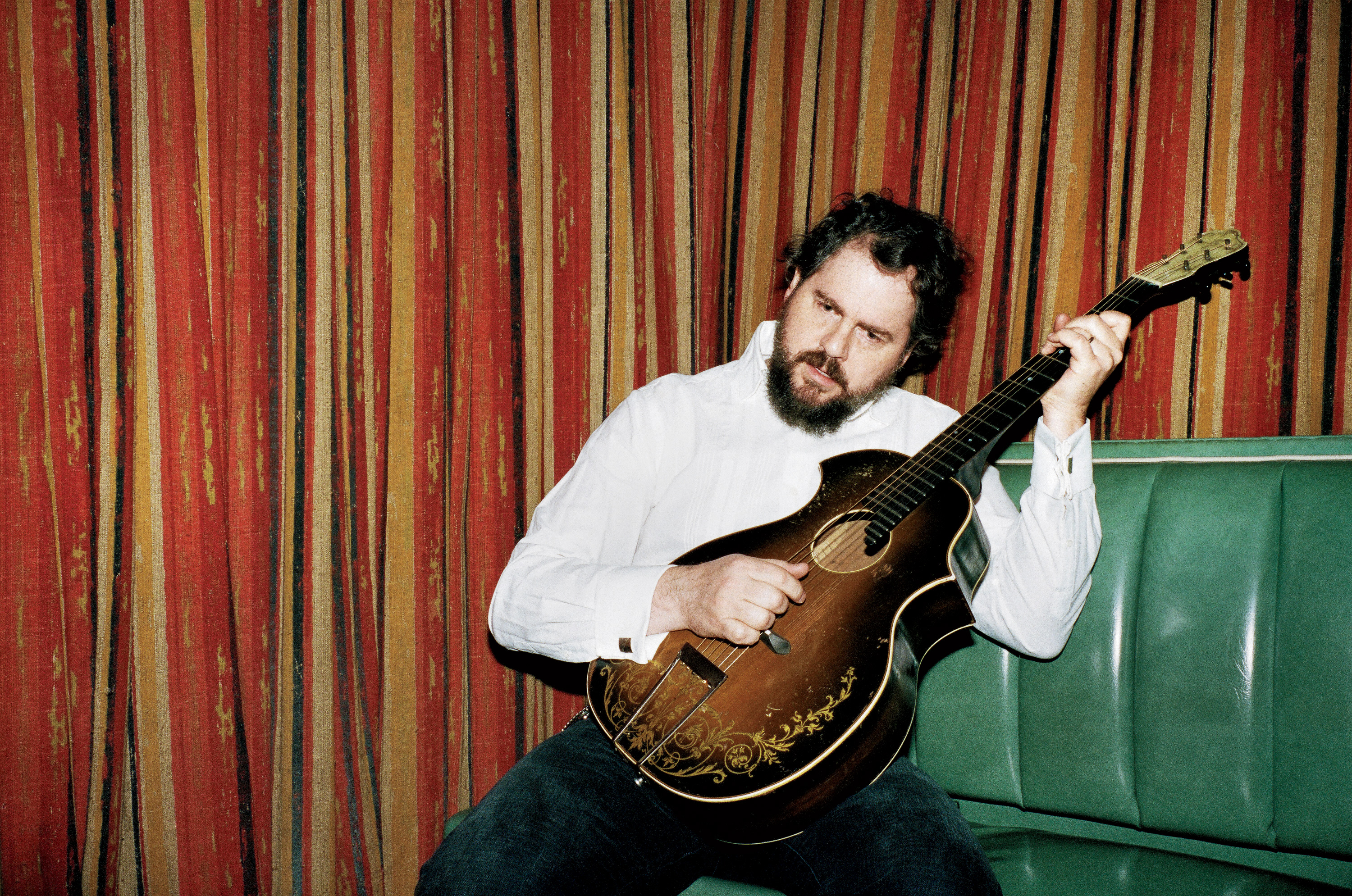
Photo: Jim Herrington
Hood and the Truckers are a rarity in a musical era saturated by overly earnest singer-songwriters or cynical, jaded rock and rollers. There aren’t many lovey-dovey happy endings in Hood’s lyrics, and he isn’t a songwriter so much as a careful, meticulous storyteller, giving a voice to the disenfranchised, the drunks, the losers, and, sometimes, even the enlightened. With English Oceans, the Truckers have released twelve albums of blistering Southern rock, colored with swaths of punk and country stompers (Hood has also put out three solo efforts). The highlights are more plentiful than a round of whiskey shots during a bachelor party. “Puttin’ People on the Moon,” for example, from 2004’s The Dirty South, is the epic tale of a hardworking man who, after the local Ford plant shuts down, resorts to slinging drugs to help support his wife, who is suffering from cancer.
Mary Alice she quit askin’ why I do the things I do
I ain’t sayin’ that she likes it, but what else I’m gonna do?
If I could solve the world’s problems I’d probably start with
hers and mine
But they can put a man on the moon
And I’m stuck down here just scraping by
The Truckers have never been a shot-and-a-beer band, preferring the ambitious and songs steeped in Southern history and scenery. They set the bar early with their 2001 magnum opus, Southern Rock Opera, a sprawling twenty-song double album that spins Alabama’s historical coming of age in the 1960s and ’70s through the eyes of a music-obsessed teenager who goes on to become a rock star, only to die in a plane crash like his hero Ronnie Van Zant of Lynyrd Skynyrd. With a full-throttle three-guitar attack, Hood tackles, as he says, the “duality of the Southern thing,” blowing up the stereotype of pickup-driving rednecks who practice racial discrimination. Instead, he posits that Southerners can still feel pride without its being tied to the sad evils of the region.
Ain’t about no hatred, better raise a glass
It’s a little about some rebels but it ain’t about the past
Ain’t about no foolish pride, ain’t about no flag
Hate’s the only thing that my truck would want to drag
You think I’m dumb, maybe not too bright
You wonder how I sleep at night
Proud of the glory, stare down the shame
Duality of the Southern thing
Key to the album’s narrative is George Wallace, the Alabama politician who was a liberal, progressive judge only to adopt a hard-line segregation stance in order to garner enough votes to be elected governor. It was a Faustian bargain, one that Hood chronicles on “Wallace,” which describes the ex-governor banished to hell after his death. Hood wrote the song on the night Wallace died in 1998. “It was all over the TV,” he recalls. “You’d turn on the news and the top story was George Wallace died, and there’s the footage. There’s the fire hoses. There’s the dogs. There’s the steps of the school. There’s all the bullshit that we were trying to live down, there it is all again.”
Hood’s partner in songwriting is Mike Cooley, another Alabama boy, from Tuscumbia. No slouch in the lyrics department either, Cooley often pens the more country-influenced, shit-kicking numbers. His songs provide a needed balance for Hood’s lofty, complex ruminations. The two met in 1985 and immediately started writing songs together, trying to earn some money to stay afloat. The pair started a punk band, Adam’s House Cat, before Hood decided to move to Athens and Cooley went back to painting houses. Eventually, he reconnected with Hood in Athens and the Truckers soon released their first album, Gangstabilly, in 1998.
The band was a combustible lot, fueled by copious amounts of booze to numb long stints on the road. Various members came and went (including Jason Isbell), and the band nearly broke up during the recording of 2006’s aptly titled A Blessing and a Curse. At the time, Cooley and Hood were only speaking to each other through intermediaries, either producer David Barbe or longtime drummer Brad Morgan. But through divorces and near divorces, marriages and second marriages, Cooley and Hood have stuck together. “We didn’t necessarily get along the first ten years we played together,” Hood says. “We probably liked each other more than either wanted to really admit. I think we both kind of wondered if maybe the grass might be greener without that other asshole.”
Hood calls Cooley one of his favorite writers, adding that Cooley’s “Zip City” from Southern Rock Opera might be “the best song we’ve ever done.” In fact, about half of the songs on the new album are Cooley-penned, the first time that’s happened in their career. “When I first started, [songwriting] wasn’t something I thought I could do,” Cooley says. “But Patterson would always tell me, ‘Cooley, if you wrote down half the stuff that comes out of your mouth, you’d be a songwriter.’ And so I did.” The pair decline to edit each other, preferring to come to the studio with their respective lyrics fully formed. Not to say they won’t suggest a change here and there. “The band’s motto is: Song Is King. Follow the song,” Hood says. “That trumps anything else we could do.”
The warm afternoon has given way to a cool evening outside the Cannery Ballroom, but inside the club it’s getting sweaty as the crowd lets loose with a beery roar when the Truckers take the stage. Instead of going with a full-throttle opener, Hood strikes the quiet first few chords of “Grand Canyon.” They just started playing the song a few shows earlier, but in-the-know fans bob their heads, and when Hood sings the line “I’ll think about Grand Canyon, and I’ll lift my glass and smile,” a hundred-odd fans do just that. Hood breaks out into a grin, still saddened by a lost friend but happy to be onstage again, in the moment and ready to rock.


